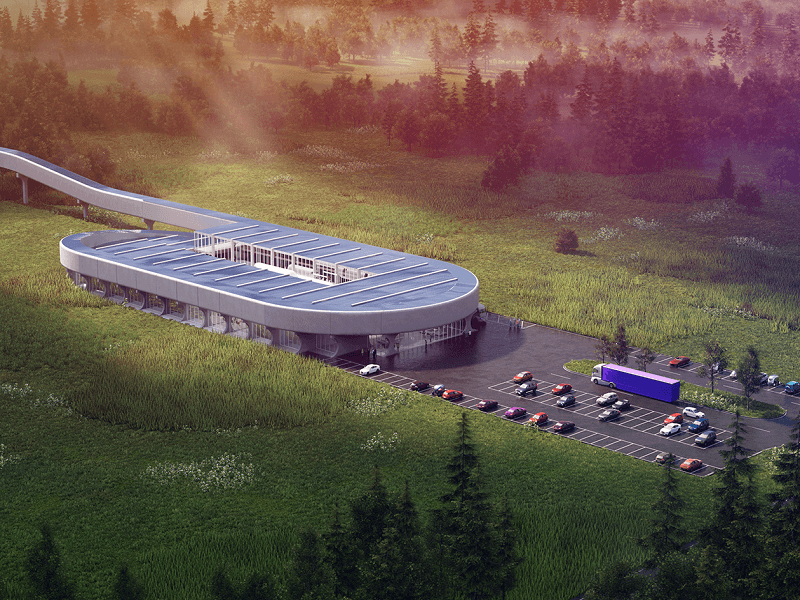
Virgin Hyperloop reveals location of its first global testing hub
October 14, 2020
This week in future tech, Virgin Hyperloop revealed the site of its first test and certification centre in the US state of West Virginia.
Richard Branson has said the unveiling of the first Virgin Hyperloop test centre in West Virginia is “one of the most exciting days” in the company’s history. Aiming to be the first to launch a commercial venture based on the futuristic hyperloop concept, the Hyperloop Certification Center will act as the company’s global hub.
Jay Walder, CEO of Virgin Hyperloop, said of the announcement: “Our goal is to bring together authorities from around the world to set global safety and industry standards for this new mode of ultra-fast, zero-emissions mode of transport.”
First proposed by Elon Musk, the hyperloop concept envisions trains travelling at immense speeds using magnetic levitation in kilometres-long tubes in near-vacuum.
The European Commission is carrying out a nine-month study to develop a safety regulatory approach for hyperloop in Europe. Meanwhile, US Department of Transportation secretary Elaine Chao and the Non-Traditional and Emerging Transportation Technology Council recently unveiled a guidance document on a clear regulatory framework for hyperloop.
Other companies have also started making headway in the space, with Valencia-based Zeleros closing €7m in funding for its own European hyperloop project earlier this year.
Spanish automaker SEAT has begun work on what it’s calling Test Center Energy (TCE), a new electric vehicle (EV) battery lab based at its main production plant in Martorell. With an investment of more than €7m, the new centre will develop and test various energy systems for electric and hybrid vehicles.
With a testing capacity that can reach 1.3MW simultaneously, it will evaluate cell modules with lithium-ion technology, medium and high voltage batteries, as well as different chargers used in the company’s range of EVs.
Set to be completed by April 2021, the TCE lab may also include several climatic chambers that will enable the batteries and modules to be tested under extreme thermal conditions, simulating the different environments a car may experience during its life cycle.
“We are very excited to announce the launch of this project,” said SEAT vice-president for R&D, Werner Tietz. “This new battery lab will enable us to develop the energy systems of future hybrid and electric vehicles, thus contributing to the creation of sustainable electromobility.”
Researchers at the University of Washington have created a sensor system that is just a fraction of the weight of a jellybean and can ride aboard a small drone or an insect, such as a moth. Its purpose is to help scientists send sensors to areas that are otherwise cut off to access or are too dangerous to go to.
When the sensor reaches its destination, the researcher can trigger the...











 What we do
What we do





















 Contact US
Contact US

